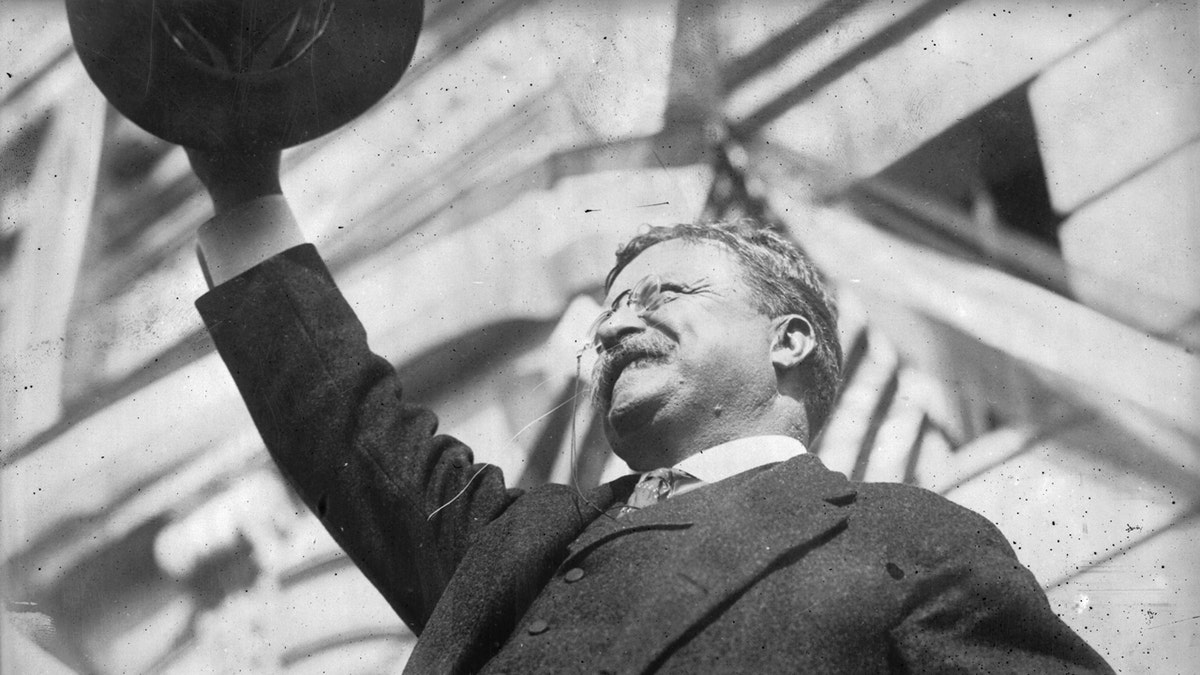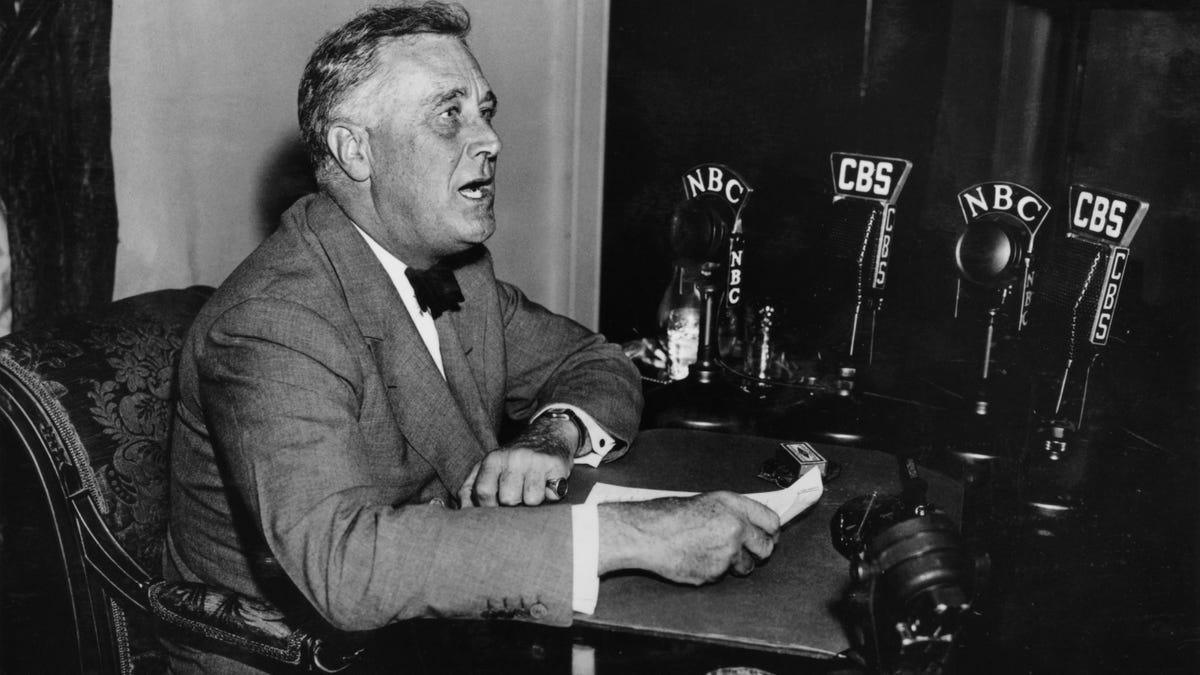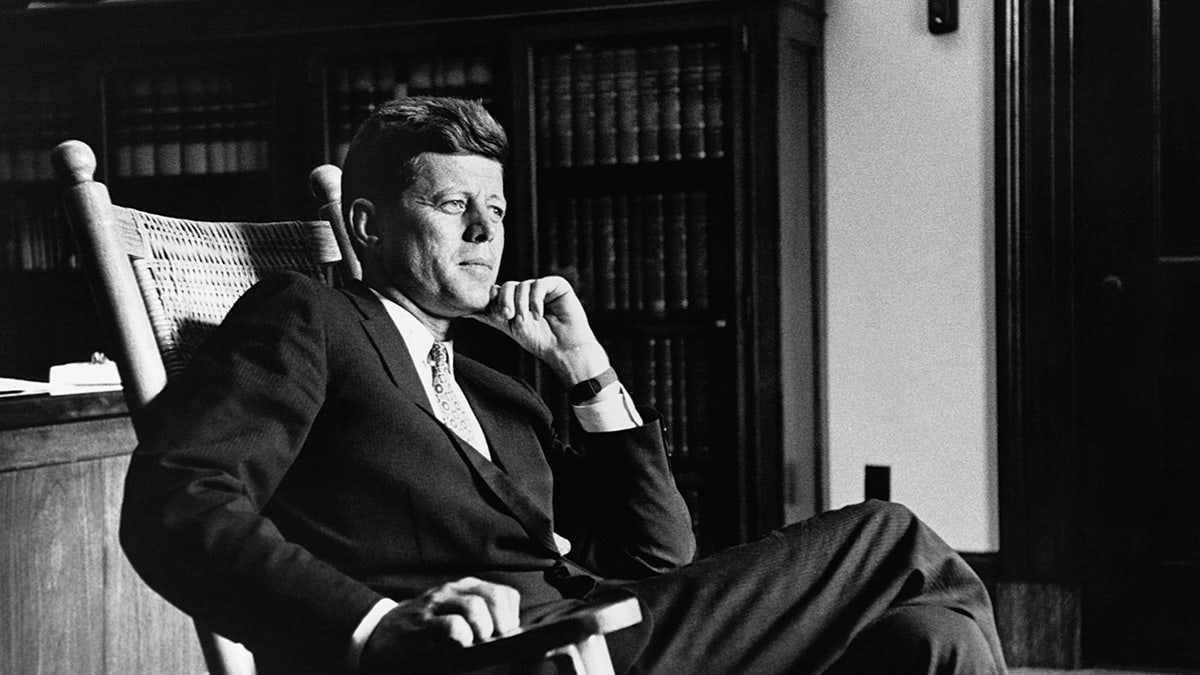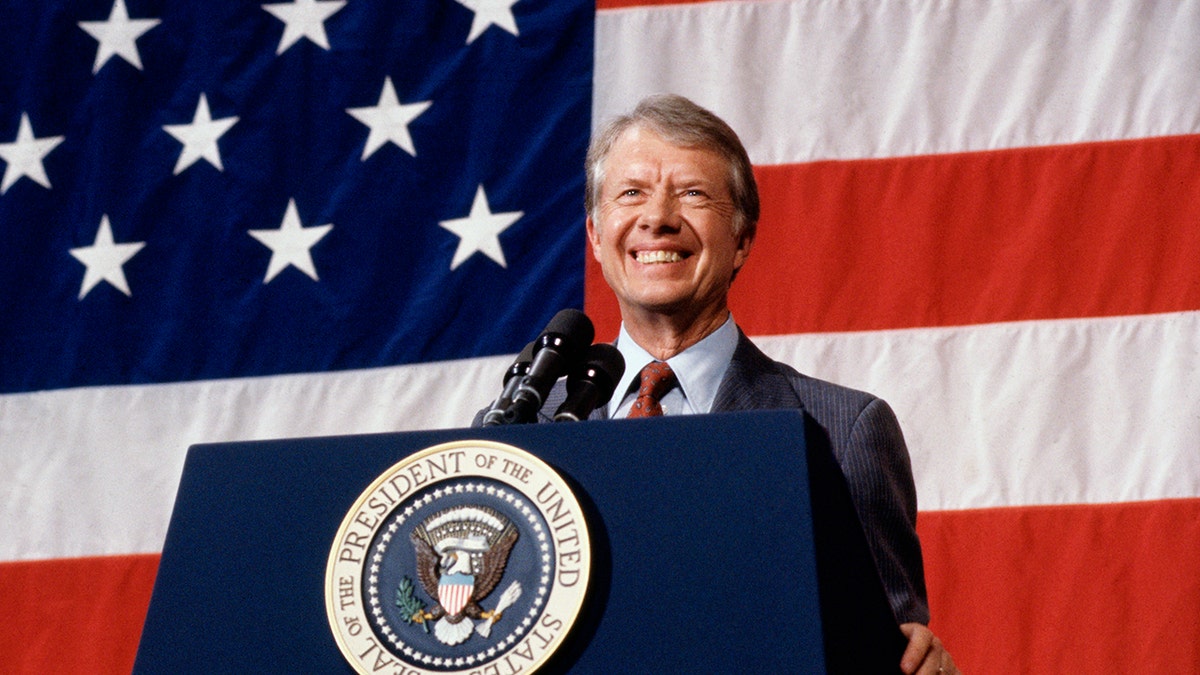【】
发布时间:2025-09-11 11:38:38 来源:都市天下脉观察 作者:热点
- Comments
Top teachers' unions funneled nearly $50 million to left-wing groups since 2022, report shows
Parents Defending Education researcher Rhyen Staley sounds off on a report finding that America's two largest teachers' unions have funneled nearly $50 million to left-wing groups since 2022.
NEWYou can now listen to Fox News articles!President Donald Trump recently canceled public-employee union contracts for thousands of federal workers. The employees worked in agencies tied to national security, allowing Trump to invoke a national security exemption to the normal rules governing federal employees. Trump’s decision builds on his March executive order expanding the agencies covered by the exemption.
It is the latest step in a series of battles over public-sector unionism at the federal level that goes back more than a century — a debate that touches on key aspects of democratic governance.
In 1902, President Theodore "Teddy" Roosevelt issued an order barring federal workers and postal employees from lobbying Congress. His successor, William Howard Taft, took a similar action in 1909 with Executive Order 1142, which focused on preventing lobbying by members of the military. Congress overturned these orders in 1912 with the Lloyd-La Follette Act, but the move did not lead to widespread public-sector unionism.

President Theodore Roosevelt (1858–1919) succeeded William McKinley after his assassination. Roosevelt was the first American to receive the Nobel Peace Prize, which was awarded for his mediation in the Russo-Japanese war. (Topical Press Agency/Getty Images)
In 1919, Massachusetts Gov. Calvin Coolidge put himself on the political map when he fired striking Boston police officers. When he made this decision, Coolidge famously declared: "There is no right to strike against the public safety, anywhere, anytime." Coolidge’s action was an important factor in Warren Harding choosing Coolidge as his vice presidential nominee in 1920.
FEDERAL JUDGE RULES AGAINST TRUMP ADMIN IN LAWSUIT AGAINST GOVERNMENT LABOR UNIONS
The Harding-Coolidge ticket defeated Ohio Gov. James Cox and New York’s Franklin Roosevelt. Coolidge became president when Harding died in 1923. Roosevelt eventually made it to the White House in 1932. But as president, Roosevelt recognized the dangers of public-sector unionism and opposed it. The 1935 Wagner Act, which boosted the power of private-sector unions, specifically exempted public-sector unions from its protections, stating that federal, state and local governments were not to be considered "employers" with the same obligations Wagner imposed on the private sector.
In 1937, Roosevelt wrote a pivotal letter to the president of the Federation of Federal Employees. According to Roosevelt: "All government employees should realize that the process of collective bargaining, as usually understood, cannot be transplanted into the public service."

President Franklin Delano Roosevelt delivers one of his fireside chat radio broadcasts in this 1930s photo. (Stock Montage/Getty Images)
Roosevelt’s reasoning was crystal clear and has been frequently cited by conservatives — and conveniently ignored by liberals. He warned: "The very nature and purposes of government make it impossible for administrative officials to represent fully or to bind the employer in mutual discussions with government employee organizations."
TRUMP'S CONTROVERSIAL PLAN TO FIRE FEDERAL WORKERS FINDS FAVOR WITH SUPREME COURT
In 1939, the Hatch Act included language limiting political activity by public-sector workers. The act, passed by a Democratic Congress under a Democratic president, stemmed from concerns about political activity by employees at Roosevelt’s Works Progress Administration during the 1936 election. Roosevelt aide Harry Hopkins, director of the WPA, had been accused of promising jobs for votes, leading to congressional outcry and the passage of the law.
A big change toward the acceptance of public-sector unions came during the John F. Kennedy administration. In 1962, Kennedy issued Executive Order 10988, explicitly allowing federal employees to form unions and bargain collectively. But as Ira Stoll points out in his book "JFK, Conservative," Kennedy also recognized important limitations. His order did not include the words "collective bargaining."

John F. Kennedy (1917-1963), the 35th president of the United States, relaxes in his trademark rocking chair in the Oval Office. (Getty Images)
He understood, like FDR, the inherent conflict of interest in granting those rights to government employees. In addition, the order said the government should not recognize any union "which asserts the right to strike against the government of the United States or any agency thereof… or which advocates the overthrow of the constitutional form of the government in the United States."
This language showed disapproval of strikes by public-sector unions and concerns about communist influence. Kennedy also exempted the FBI and CIA from public-sector unionism because of national security concerns — a precursor to Trump’s recent actions.
If there was one president who did the most to promote public-sector unionism in the federal government, it was Jimmy Carter. Public-sector unionism had already been rising at the local level when Carter was elected in 1976. Recognizing this trend, Victor Gotbaum, head of New York’s American Federation of State, County and Municipal Employees (AFSCME), bragged in 1975, "We have the power, in a sense, to elect our own boss."

President Jimmy Carter addressing a town meeting.
- 上一篇:Benny Johnson blasts political left for lacking 'basic human decency'
- 下一篇:Parents of slain Capitol Hill intern tearfully thank Jeanine Pirro
相关文章
- Weekend sleep apnea severity is worse than on weekdays, study shows
- 史上最具争议围棋决赛是如何诞生的?
- 张之臻/马哈奇组合直落两盘取胜 晋级澳网男双32强
- 来时冰雪去时春——写在哈尔滨第九届亚洲冬季运动会闭幕之际
- Taylor Swift's generous act revealed by pro wrestling legend
- 中国女足将于2月赴西班牙集训并参加邀请赛
- “梁王”组合出击 马来西亚羽毛球公开赛首轮第二日赛程出炉
- 正好侃球丨中国足协提出新年目标:国足力争世预赛小组前四
- What are chocolate cysts and how do they relate to endometriosis?
- 惠英红65岁生日收到樊振东签名球拍:祝小胖驰骋赛场,为国争光
- Jack Ciattarelli confident he'll win New Jersey governor's race, flip state red
- 谷爱凌退出亚冬会 备战世界杯期间再度受伤
- 亚冬会|“希望学习中方经验,推动沙特冰雪运动发展”——访沙特代表团团长艾哈迈德·本·杜瓦希
- 正好侃球丨这一年的泰山 有不少收获
- Pope to canonize Carlo Acutis and Pier Giorgio Frassati in Rome Sunday
- 亚冬进度条加载中 昨日有哪些新鲜事?
- 2025年哈尔滨亚冬会中国体育代表团领奖装备发布
- 中国足球职业联赛迎来“管办分离”时代
- 'Harry Potter' author demands filmmaker explain which gender beliefs offend him
- 33岁孙杨,有新身份!
随便看看
- Copyright © 2025 Powered by 【】,都市天下脉观察 辽ICP备198741324484号sitemap
